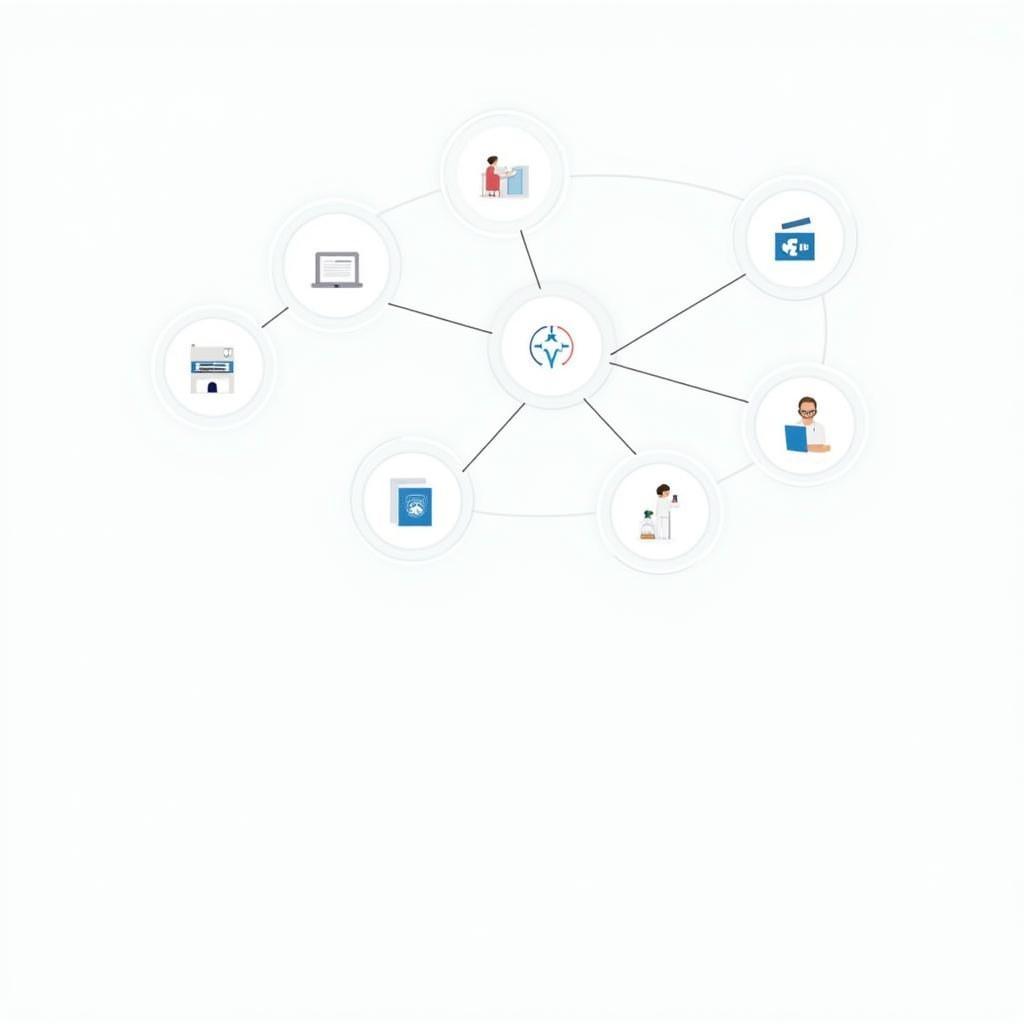Managed care services are a type of healthcare delivery system that aims to provide quality care at an affordable cost. Instead of traditional fee-for-service healthcare, where providers are paid for each service they render, managed care organizations (MCOs) negotiate contracts with healthcare providers to offer a predetermined set of services to their members at a reduced cost.
Understanding the Basics of Managed Care
In essence, managed care acts as an intermediary between patients, healthcare providers, and payers (often employers or insurance companies). This system emphasizes preventative care and disease management to help control healthcare costs. MCOs achieve this by:
- Network Creation: Establishing a network of healthcare providers who agree to provide services at discounted rates.
- Utilization Management: Implementing measures to control the use of unnecessary or expensive services.
- Quality Management: Monitoring and improving the quality of care provided within the network.
Types of Managed Care Plans
There are various types of managed care plans, each with its own structure and benefits:
- Health Maintenance Organizations (HMOs): HMOs require members to choose a primary care physician (PCP) who acts as a gatekeeper for all healthcare needs. Referrals from the PCP are generally needed to see specialists.
- Preferred Provider Organizations (PPOs): PPOs offer more flexibility than HMOs. Members can see in-network providers at lower costs but have the option to see out-of-network providers at higher costs.
- Point of Service (POS) Plans: POS plans combine features of HMOs and PPOs. Members choose a PCP within the network but have the flexibility to see out-of-network providers with referrals and at higher costs.
What are the Advantages of Managed Care Services?
Managed care services offer several potential advantages:
- Cost Savings: Negotiated rates with providers and a focus on preventative care can lead to lower healthcare costs for both individuals and employers.
- Streamlined Access: MCOs often offer care coordination services to help navigate the healthcare system and connect with specialists.
- Preventive Care Focus: Managed care plans emphasize preventative services like screenings and wellness visits, potentially leading to better long-term health outcomes.
Potential Drawbacks to Consider
While there are advantages, managed care also has some potential drawbacks:
- Limited Choice: Some plans restrict the choice of healthcare providers, requiring members to stay within a specific network.
- Referral Requirements: The need for referrals to see specialists can create delays in receiving specialized care.
- Concerns About Coverage: Some critics argue that the focus on cost control in managed care can sometimes lead to denials of coverage for necessary services.
Choosing the Right Managed Care Plan
Selecting the right managed care plan depends on individual healthcare needs and preferences. Here are key factors to consider:
- Network Coverage: Ensure the plan includes your preferred doctors and hospitals, particularly if you have existing healthcare providers you trust.
- Cost Sharing: Understand the out-of-pocket expenses like copayments, deductibles, and coinsurance associated with the plan.
- Benefits Package: Review the plan’s covered services, including prescription drug coverage, mental health services, and maternity care.
Managed Care and the Future of Healthcare
Managed care continues to evolve as technology advances and healthcare costs rise. New models like Accountable Care Organizations (ACOs) are emerging, further emphasizing care coordination and value-based care. Understanding managed care is essential for navigating the complexities of the modern healthcare landscape and making informed decisions about your health and well-being.
FAQ
1. What is the main difference between an HMO and a PPO?
The main difference lies in network flexibility and referral requirements. HMOs typically require members to stay within a network and obtain referrals from their PCP to see specialists. PPOs offer more flexibility, allowing members to see out-of-network providers, though at a higher cost.
2. How do I find a managed care plan in my area?
You can find managed care plans through your employer, the Health Insurance Marketplace, or by contacting insurance companies directly.
3. Are pre-existing conditions covered under managed care?
Yes, under the Affordable Care Act, managed care plans cannot deny coverage or charge higher premiums based on pre-existing conditions.
4. What if I need to see a specialist who is not in my plan’s network?
The process varies depending on your plan. HMOs generally require referrals to see out-of-network specialists, while PPOs may offer some coverage for out-of-network care, but at a higher cost.
5. Can I switch managed care plans at any time?
You can typically switch plans during open enrollment periods or if you experience a qualifying life event, such as a job change or marriage.
Don’t forget to check out our other resources on car services:
- What is included in a general car service
- What is a basic car service
- Do you tip at a full service car wash
- What does a major car service cost
- What are some maintenance services of car
Need help with car diagnostics? Contact our expert team on WhatsApp: +1(641)206-8880 or email: [email protected]. We’re available 24/7 to assist you.



